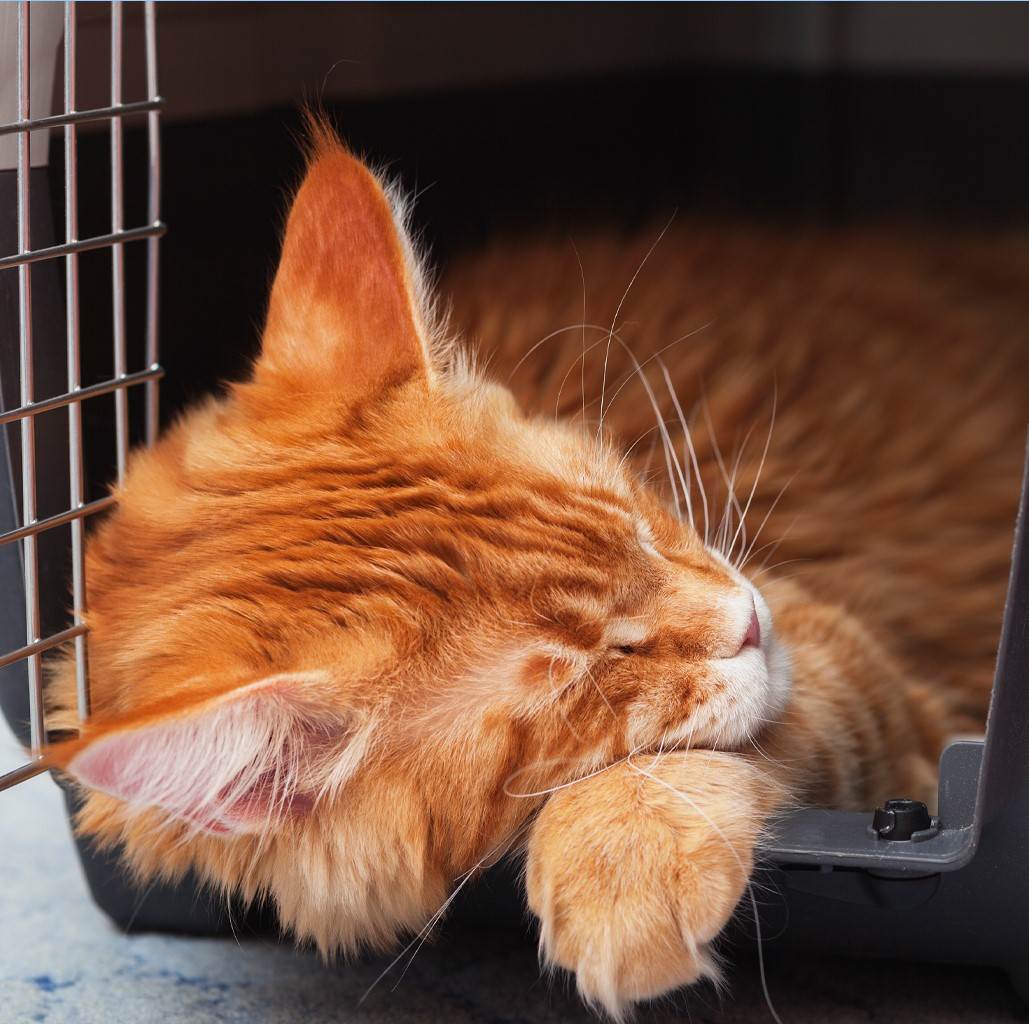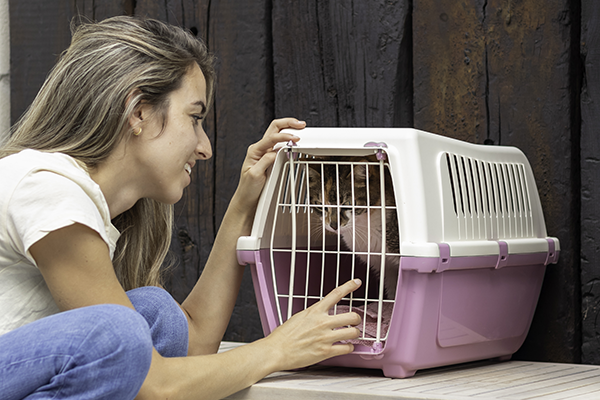Anxious cat behaviours
It is important that you learn to recognise your cat’s signs of anxiety, because cats do not show their emotions as openly as dogs. Instead of ‘acting out’, they tend to withdraw and become quiet.
When faced with a sudden threat, they usually choose to escape (if possible) instead of fighting. Cats experiencing anxiety may exhibit a variety of signs: they may become restless, freeze, hide, or vocalise in different ways. They may also unintentionally miss the litter box, and in cases of extreme anxiety, even defensive aggression is possible.
While these signs are troublesome enough at home, they become more frustrating and disruptive when they occur before or on the way to the vet. Panicking because you can’t find your cat when it’s time to leave, struggling to place your cat in the carrier, having to listen to miserable yowls the entire ride — these are behaviours everyone wants to avoid. When you can pick up the signs early enough, you are better able to help your cat and prevent the situation from getting worse.



